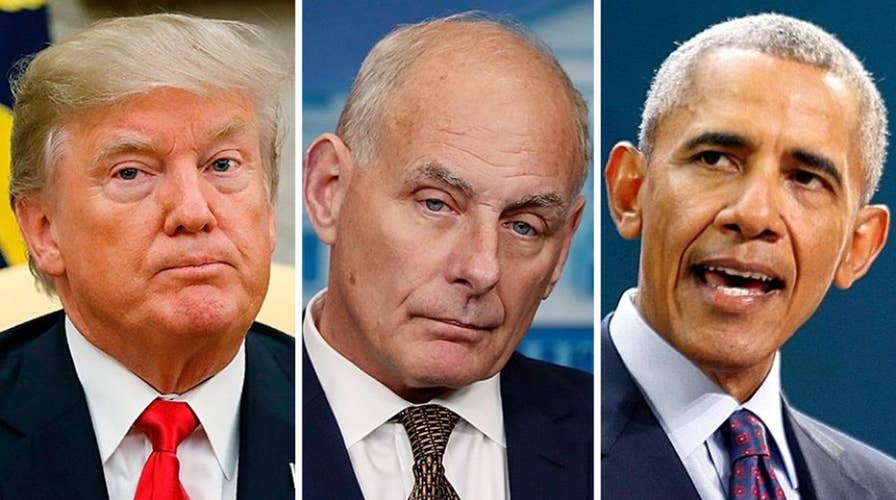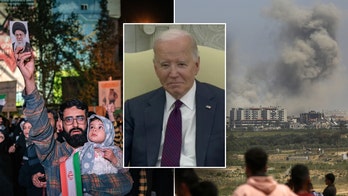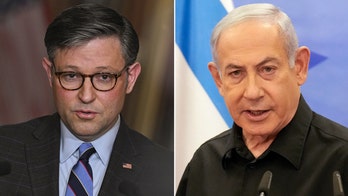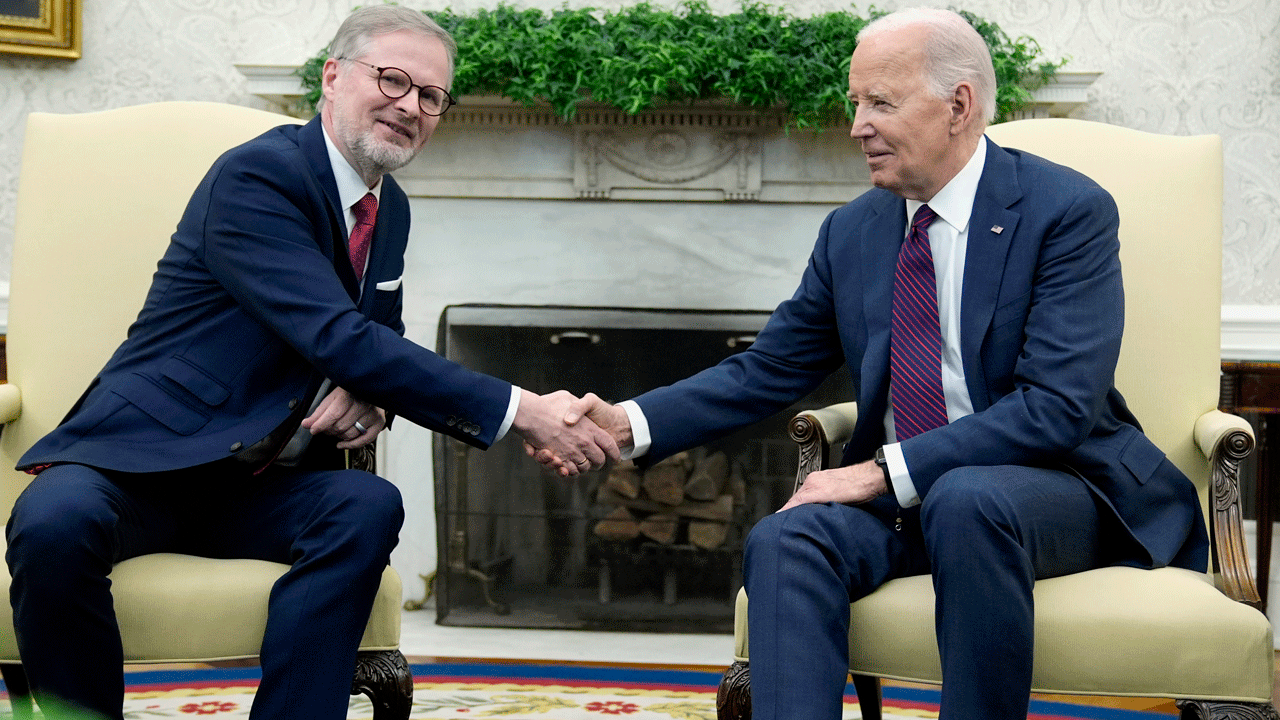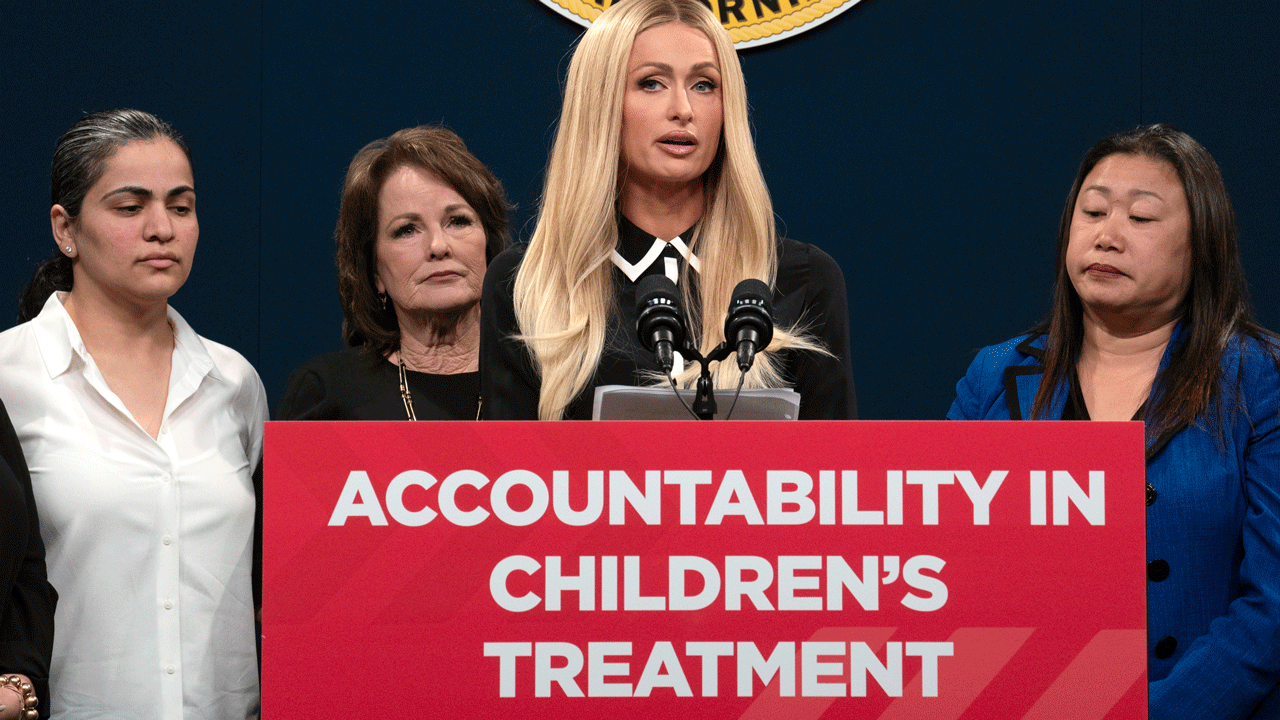Trump doubles down on slain soldier phone call claims
Fox News contributor Ari Fleischer gives his take.
President Trump doubled down Tuesday on his controversial claim that past presidents didn’t properly console the families of fallen servicemembers, raising the point that Barack Obama apparently did not call now-White House Chief of Staff John Kelly after his son was killed in Afghanistan in 2010.
“You could ask General Kelly, did you get a call from Obama? You could ask other people. I don’t know what Obama’s policy was,” Trump told Fox News’ Brian Kilmeade on his radio show on Tuesday.
An administration official confirmed that Obama did not make a condolence call to Kelly, who was the highest-ranking military officer to lose a child in Iraq or Afghanistan.
Trump's earlier suggestion, however, that his predecessors fell short in consoling families of fallen soldiers brought a visceral reaction from those who witnessed those grieving encounters.
"He's a deranged animal," Alyssa Mastromonaco, a former deputy chief of staff to Obama, tweeted about Trump Monday. With an expletive, she called Trump's statement in the Rose Garden a lie.
The record is plain that presidents reached out to families of the dead and to the wounded, often with their presence as well as by letter and phone. The path to Walter Reed National Military Medical Center and other military hospitals, as well as to the Dover, Delaware, Air Force Base where the remains of fallen soldiers are often brought, was a familiar one to Obama, George W. Bush and others.
While an official confirmed that Obama did not call former Marine general Kelly when his son -- Marine 2nd Lt. Robert Kelly -- was killed, it’s unclear whether Obama reached out in some other way.
Asked about Trump’s criticism of Obama, 2016 Democratic vice presidential nominee Sen. Tim Kaine pushed back and said Obama took the deaths of servicemembers seriously.
Trump first addressed the matter during a press conference Monday when asked why he had not spoken about the four soldiers killed in a Niger ambush. They died when militants thought to be affiliated with the Islamic State group ambushed them while they were patrolling in unarmored trucks with Nigerien troops.
"I actually wrote letters individually to the soldiers we're talking about, and they're going to be going out either today or tomorrow," he said, meaning he wrote to the families of the fallen soldiers.
He said he planned to call them, crediting himself with taking extra steps in honoring the dead properly. "Most of them didn't make calls," he said of his predecessors. He said it's possible that Obama "did sometimes," but "other presidents did not call."
On Tuesday, Trump told Kilmeade he had “nothing to clarify.”
“I think I’ve called every family of somebody that’s died. And it’s the hardest call to make and I said it very loud and clear yesterday. … As far as other representatives, I don’t know.”
He said: “I really speak for myself. I don’t speak for other people. I don’t know what Bush did. I don’t know what Obama did. … But I believe his policy is somewhat different than my policy.”
Bush, even at the height of two wars, "wrote all the families of the fallen," said Freddy Ford, spokesman for the former president. Ford said Bush also called or met "hundreds, if not thousands" of family members of the war dead.
Retired Gen. Martin E. Dempsey, former chairman of the Joint Chiefs of Staff, confirmed those contacts, tweeting: "POTUS 43 & 44 and first ladies cared deeply, worked tirelessly for the serving, the fallen and their families. Not politics. Sacred Trust."
The White House said letters would go out and calls would be made to the families of the slain soldiers in Niger on Tuesday. The family of Staff Sgt. Dustin Wright, one of the soldiers, was told by an Army casualty assistance officer to expect a phone call from Trump by Tuesday evening, said Will Wright, the soldier's brother.
The soldier's family in rural southeast Georgia has received "immeasurable support from the administration" and the military since he was killed Oct. 4, Will Wright told The Associated Press. He added that it would be "a great honor" to hear from Trump personally.
Kellyanne Conway, a senior White House adviser, suggested Tuesday that there were many ways to console a grieving family and said that Trump doesn't always make public when he is doing that "because these are very private, very solemn sacrosanct really moments."
Fox News’ John Roberts and Peter Doocy and The Associated Press contributed to this report.
